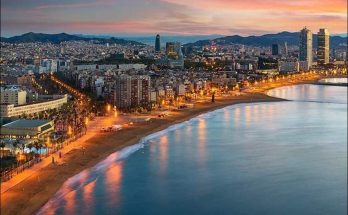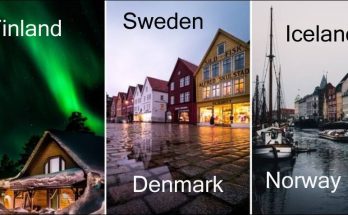Portugal is one of the smaller countries of Europe, its continental portion occupying 34,312 square miles, or about one-sixth of the Iberian Peninsula. Historically Iberia has been considered a remote compartment of Europe, culturally separated, even isolated, from the rest of the continent by the Pyrenees between France and Spain.
For Portugal, on the far western edge of the peninsula with the vastness of Spain between it and the continent, the isolation was even more pronounced and gave the country an Atlantic orientation from the earliest days. A reminder of this geographical and historical orientation is the fact that two Atlantic Ocean archipelagoes — the Azores, about 800 miles due west of Lisbon, and the Madeira Islands, about 600 miles to the southwest — are part of metropolitan Portugal.
Including the Azores (nine major islands and several islets covering about 890 square miles) and Madeira (two major and several minor islands covering about 308 square miles), metropolitan Portugal has a total land area of about 35,510 square miles. Portugal also exercises jurisdiction over the Selvagens, a group of small uninhabited islands about 145 miles southeast of Madeira.
Portugal has several distinct geographical regions where the culture of the people has been markedly influenced by the physical environment in which they live and work. Northern Portugal is a mountainous, rainy region, characterized by vineyards and small farms; in the central coastal region, largely consisting of dunes and pine forests, farmers often supplement their incomes and diets by becoming parttime fishermen.
The greater Lisbon area is a mixture of small farms and intensive industrialization; the interior agricultural areas with small to medium-sized farms and some mining and light industry form a transitional zone into the Alentejo, the region south of the Rio Tejo, where large-scale agriculture and grazing are predominant; finally in the extreme south the Algarve is a dry region of small holdings where animal grazing and fishing are the chief occupations of the inhabitants. The outstanding influence in Portugals’s geography is not a land feature or any combination of features; rather it is the Atlantic Ocean, and many Portuguese have traditionally turned to the sea for their livelihoods.
Views: 159




